End-of-School-Year Prep for Kids with Autism: How ABA Can Help
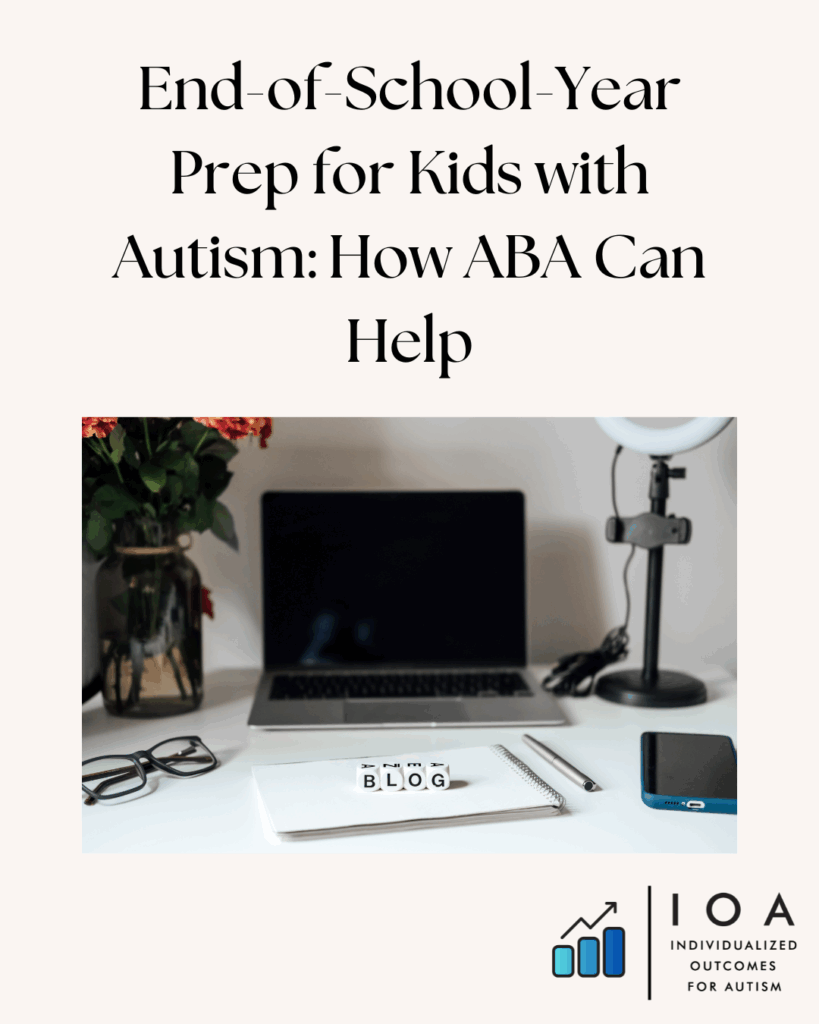
End-of-School-Year Prep for Kids with Autism: How ABA Can Help By Angela Khater, MA, BCBA | Clinical Director at IOA As summer approaches, families of children with autism may wonder how to maintain structure and support during the break from school. At IOA, we view this seasonal shift as a valuable opportunity for growth. In this post, Clinical Director Angela Khater, MA, BCBA, shares how ABA strategies—from visual supports and school readiness skills to increasing therapy hours—can help your child transition smoothly and thrive all summer long.
Memorial Day and Beyond: Supporting Children with Autism Through Summer Activities
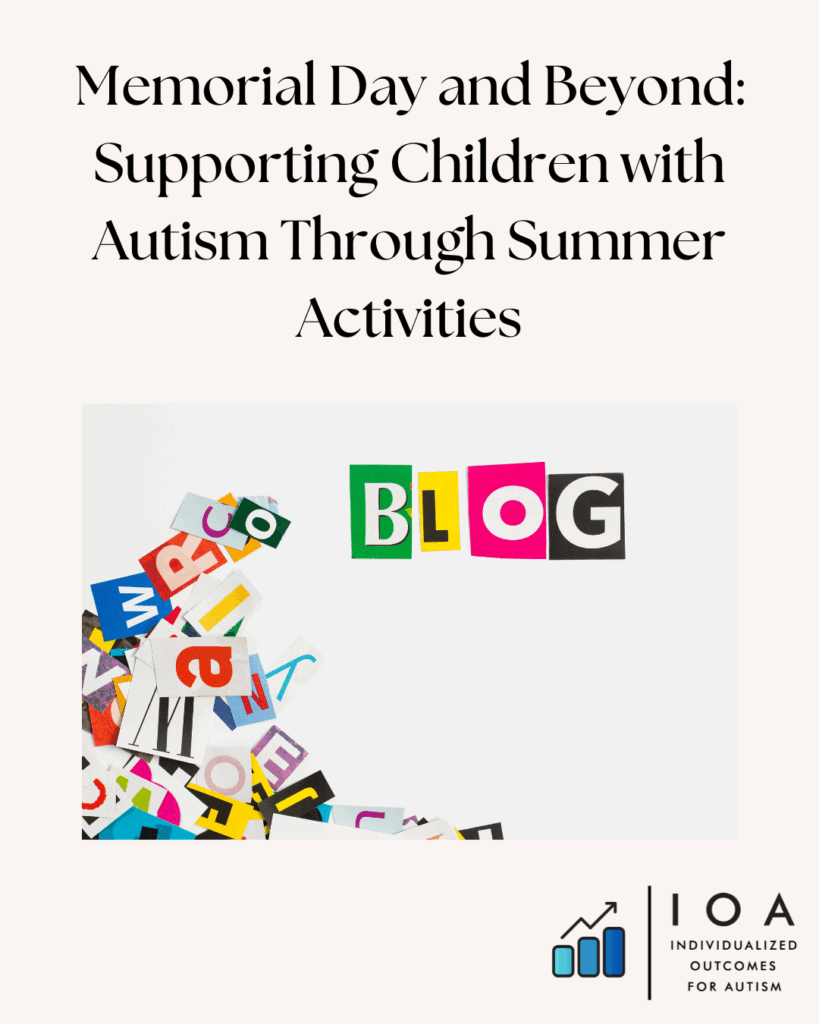
Memorial Day and Beyond: Supporting Children with Autism Through Summer Activities By Angela Khater, MA, BCBA | Clinical Director at IOA As Memorial Day kicks off the summer season, many families look forward to community events, pool days, and family gatherings. But for children with autism, these changes in routine and sensory environments can be overwhelming. In this blog, IOA’s Clinical Director Angela Khater shares practical, therapist-backed strategies for easing transitions, supporting safety, and creating inclusive summer experiences—from preparing for parades and public outings to navigating BBQs and schedule changes. Discover how visual supports, social stories, and individualized planning can make your family’s summer safe, joyful, and stress-free. 📘 Read more to access helpful tips for a successful summer!
Positive Reinforcement Strategies at Home: Building Success One Reward at a Time

Positive Reinforcement Strategies at Home: Building Success One Reward at a Time By Angela Khater, MA, BCBA | Clinical Director at IOA Encouraging positive behavior doesn’t have to be complicated. In this week’s IOA Weekly blog, Clinical Director Angela Khater breaks down practical, evidence-based reinforcement strategies that parents and caregivers can use at home. Learn how simple tools—like specific praise, token systems, and “first-then” statements—can build confidence, strengthen family connections, and support long-term behavioral success for children with autism.
When Your ABA Provider Closes: A Mom’s Guide to Navigating the Transition
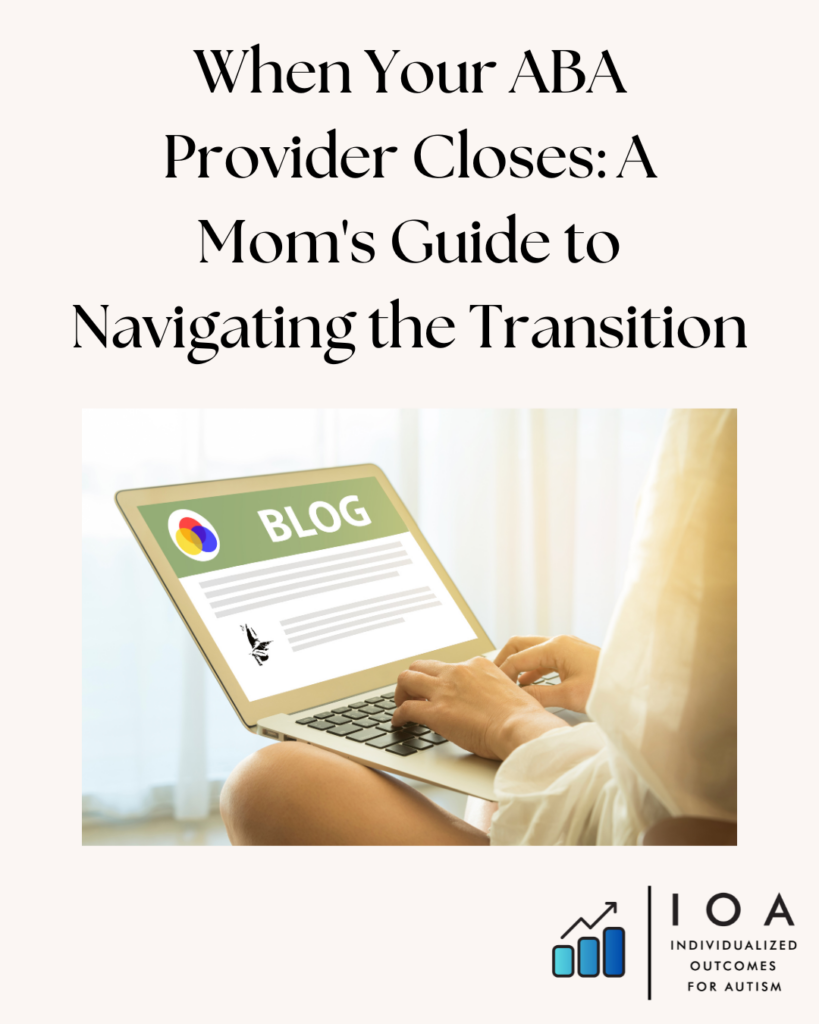
When Your ABA Provider Closes: A Mom’s Guide to Navigating the Transition By Angela Khater, MA, BCBA | Clinical Director at IOA When an ABA provider shuts down unexpectedly, families are left scrambling. As both a clinician and a parent, Angela Khater understands the fear and chaos this creates. In this practical and compassionate guide, she walks parents through every step—retrieving critical records, handling insurance calls, surviving waitlists, and creating a stopgap plan at home. Whether you’re facing this challenge now or just want to be prepared, this blog equips you with real-world strategies and reassurance from someone who truly gets it.
Building Friendship Skills: A Parent-Friendly Guide from Your ABA Team

Building Friendship Skills: A Parent-Friendly Guide from Your ABA Team By Angela Khater, MA, BCBA | Clinical Director at IOA Watching your child struggle to make friends can be heartbreaking—but you’re not alone. At IOA, we believe every child deserves the opportunity to experience meaningful social connections. In this week’s blog, Clinical Director Angela Khater offers practical, ABA-based strategies you can use at home to support your child’s friendship development—from using their interests as bridges to celebrating small wins. Discover how structured play, everyday interactions, and positive reinforcement can make social growth achievable and rewarding.
How to Choose the Right ABA provider

How to Choose the Right ABA Provider By Angela Khater, MA, BCBA | Clinical Director at IOA “When my son was diagnosed with autism, I wasn’t a BCBA yet—I was just a mom, overwhelmed and searching for answers. Years later, I’ve sat on both sides of the table, and I know how deeply personal this journey is. Choosing an ABA provider isn’t just about credentials or convenience—it’s about trust, respect, and connection. In this blog, I share what I’ve learned as both a clinician and a parent: what to look for, what questions to ask, and how to find a team that honors your child’s individuality and includes you every step of the way. Because at IOA, we believe therapy should feel human, not clinical. And every child deserves a provider who sees their potential—even on the tough days.” ➡️ Read the full blog to learn how to find the right fit for your family.
Beyond Awareness: A Personal and Professional Perspective on Autism Acceptance
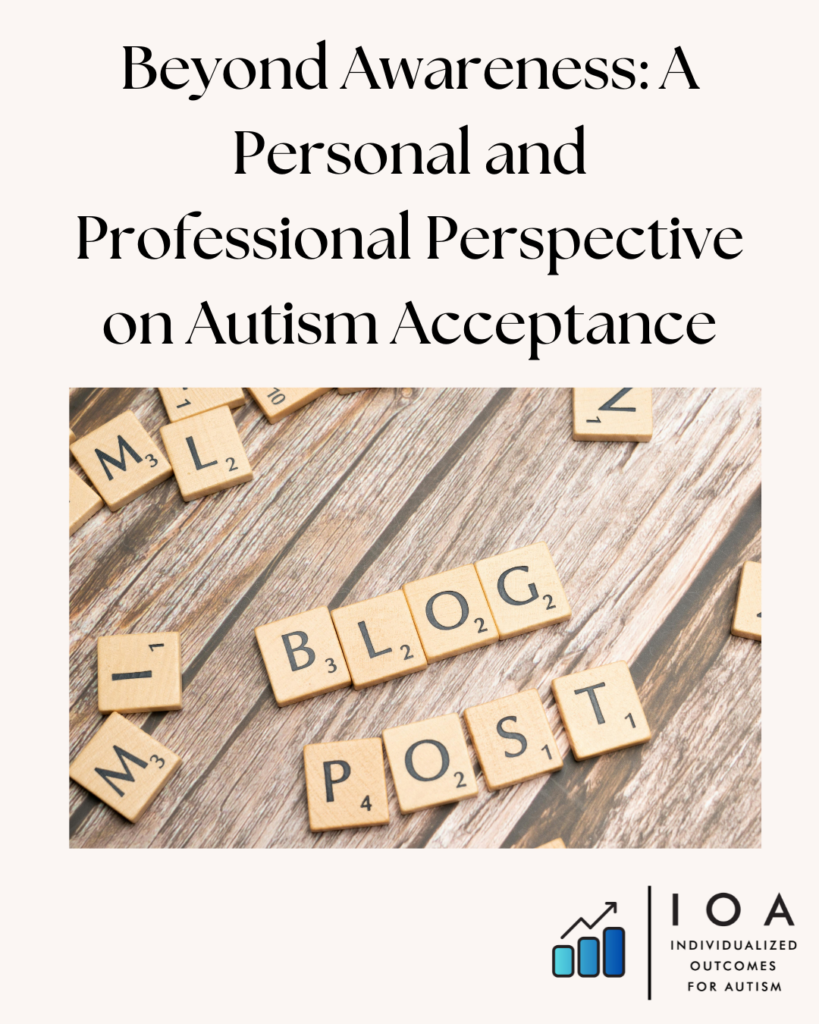
Beyond Awareness: A Personal and Professional Perspective on Autism Acceptance By Angela Khater, MA, BCBA | Clinical Director at IOA April is Autism Awareness Month—but for Angela Khater, both an autism mom and a behavior analyst, awareness is only the first step. In this heartfelt blog, Angela shares how her dual role as a parent and professional shapes IOA’s family-centered, compassionate approach to ABA therapy. This piece is a call to move beyond awareness and into action, inclusion, and genuine acceptance. It’s a reminder that success looks different for every family—and that every child deserves to be supported, understood, and celebrated for who they are. Read more about how lived experience drives the mission at IOA.
Building Early Communication Skills Through Play: No Flashcards Required!

When my son was diagnosed with a language delay at two, I was handed a stack of flashcards and worksheets. But you know what actually worked? Play. Racing trucks, silly sound games, and dance parties did more for his communication than any structured lesson ever could. Play is a child’s first language—it’s how they connect, learn, and communicate. Whether it’s turning a sensory bin into a conversation starter or using pretend play to build vocabulary, the best breakthroughs happen when we follow their lead. Forget the flashcards (at least for now) and embrace the messy, joyful magic of play. Communication will follow.
Encouraging Spontaneous Communication: 6 tips

**Encouraging Spontaneous Communication: 6 Tips for Success** We’ve all seen it—kids who can perfectly repeat words when prompted but rarely initiate communication on their own. It’s like having all the right tools but not knowing when to use them. So how do we bridge that gap and help children communicate *because they want to*, not just because they’re asked? Spontaneous communication is a huge milestone in ABA therapy. It’s when a child independently asks for a snack because they’re hungry, not because we prompted them with “What do you want?” These moments show that language has real meaning and purpose—and they’re worth celebrating!
Understanding Developmental Milestones Through an ABA Lens: What’s the Real Deal?

Understanding Developmental Milestones Through an ABA Lens: What’s the Real Deal? When I first became an Autism Mom, the words *developmental milestones* felt overwhelming. Therapists took notes, used unfamiliar terms, and I found myself nodding along while secretly Googling everything later. Fast forward to today, and as a BCBA, I’m now the one explaining these concepts to parents who feel just as lost as I once did. So, what do developmental milestones really mean in the world of ABA? They aren’t just checkboxes on a chart—they’re essential life skills broken down into teachable, measurable steps. From communication and social interaction to daily living tasks, ABA focuses on meeting each child where they are and creating a roadmap tailored to their unique learning path. Want to learn how ABA makes milestone tracking practical, flexible, and individualized? Let’s break it down—without the jargon or overwhelm. **Read more in this week’s IOA Weekly Blog Drop!**
“But We Already Tried ABA”
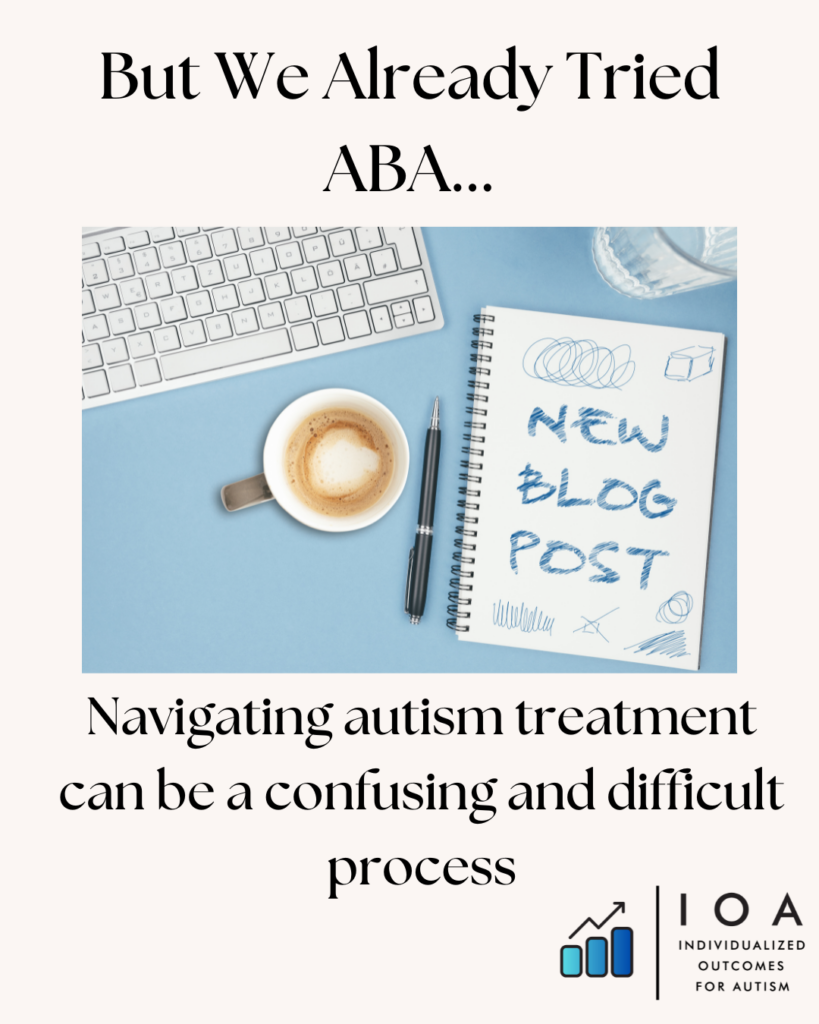
Angela Khater, MA, BCBA, LBA Navigating autism treatment can be a confusing and difficult process, especially when challenging behavior is involved, such as aggression, self-injury, or even tantrums. For parents or teachers who deal with these behaviors, finding an evidence-based strategy that works is a must. This is often where a behavior analyst or BCBA can help, designing a custom applied behavior analysis (ABA) treatment plan to decrease those dangerous behaviors.
Making ABA Therapy Work at Home: Creating Routines That Support Your Child’s Progress
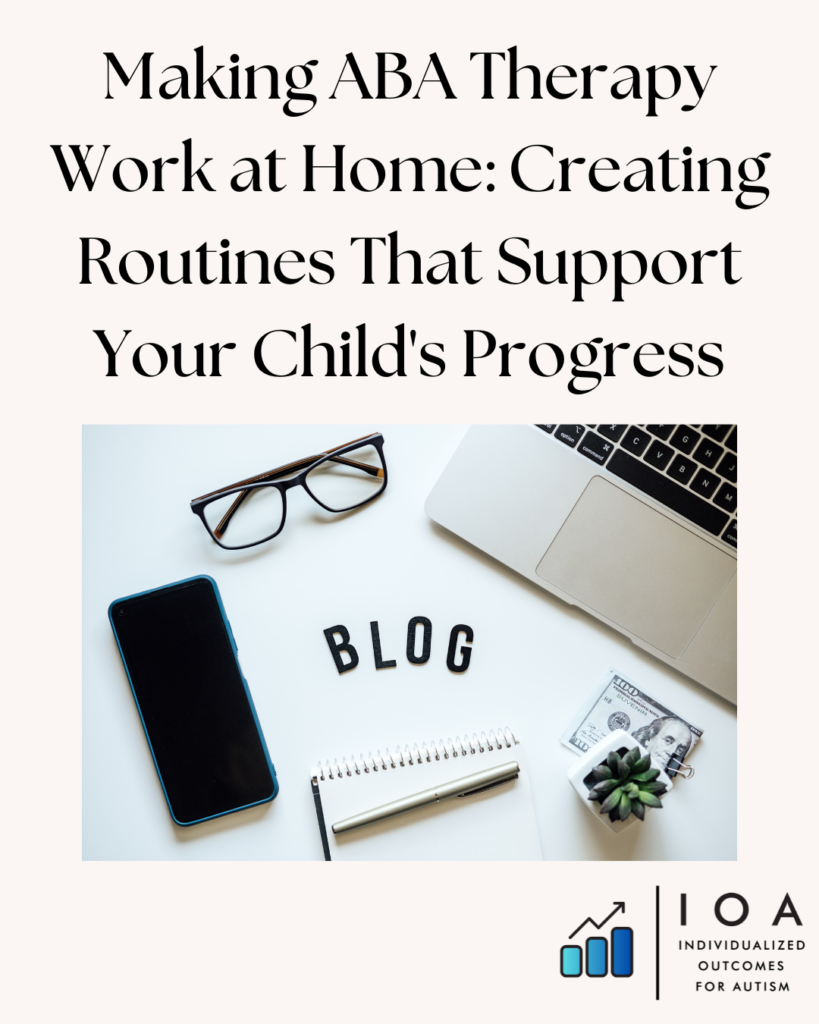
Making ABA Therapy Work at Home: Creating Routines That Support Your Child’s Progress Angela Khater, MA, BCBA, LBA As both a parent and professional in the ABA field, I know firsthand that the real progress in Applied Behavior Analysis happens in those everyday moments at home. While your child’s therapy sessions are crucial, it’s the consistent practice and implementation of these strategies in your daily routines that truly makes the difference.
What to Really Expect From Your ABA Parent Training Sessions
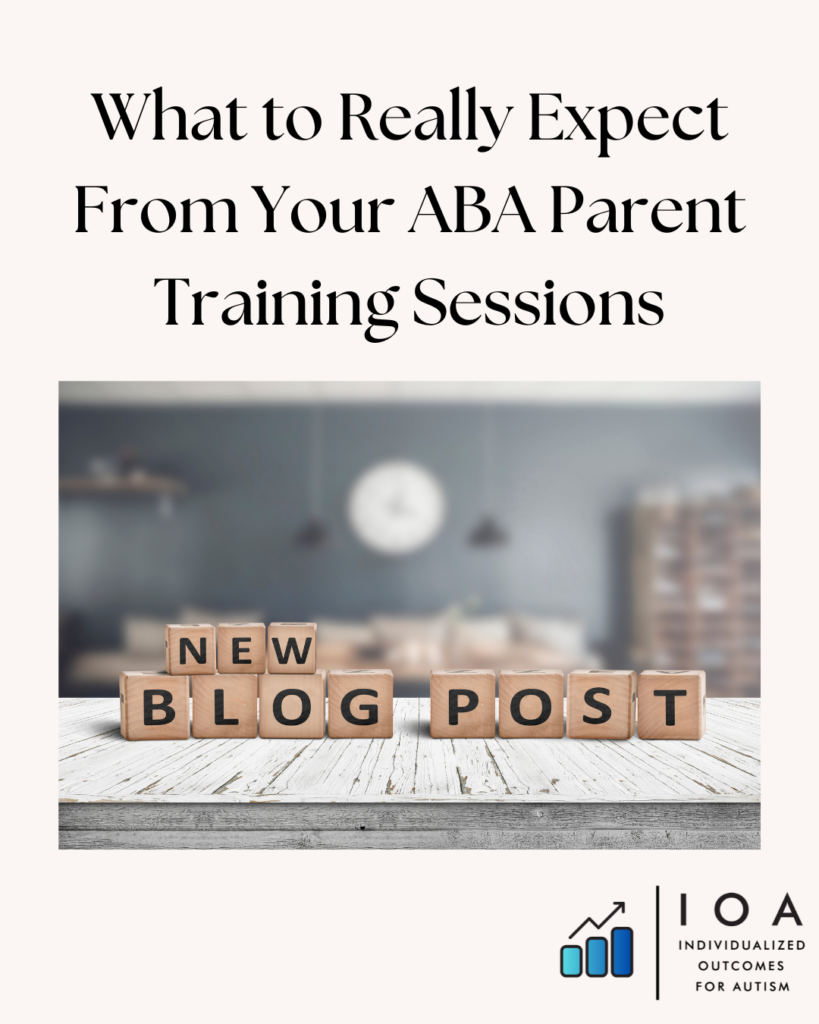
What to Really Expect From Your ABA Parent Training Sessions Angela Khater, MA, BCBA, LBA One of the most common questions I get from families starting ABA therapy is “What exactly happens in parent training?” As both a behavior analyst and an autism mom, I love this question because it shows parents are ready to dive in and be part of their child’s progress.
3 Practical Lessons on Treating Vocal Stereotypy

Angela khater, MA, BCBA, LBA When working with young children with autism spectrum disorder (ASD), vocal stereotypy, sometimes referred to as scripting, can interfere with the ability of our clients to learn new material. It can also disrupt performance of previously learned behaviors, making for a potentially difficult therapy session.
In-Home vs. Center Based Services—What’s the Difference?
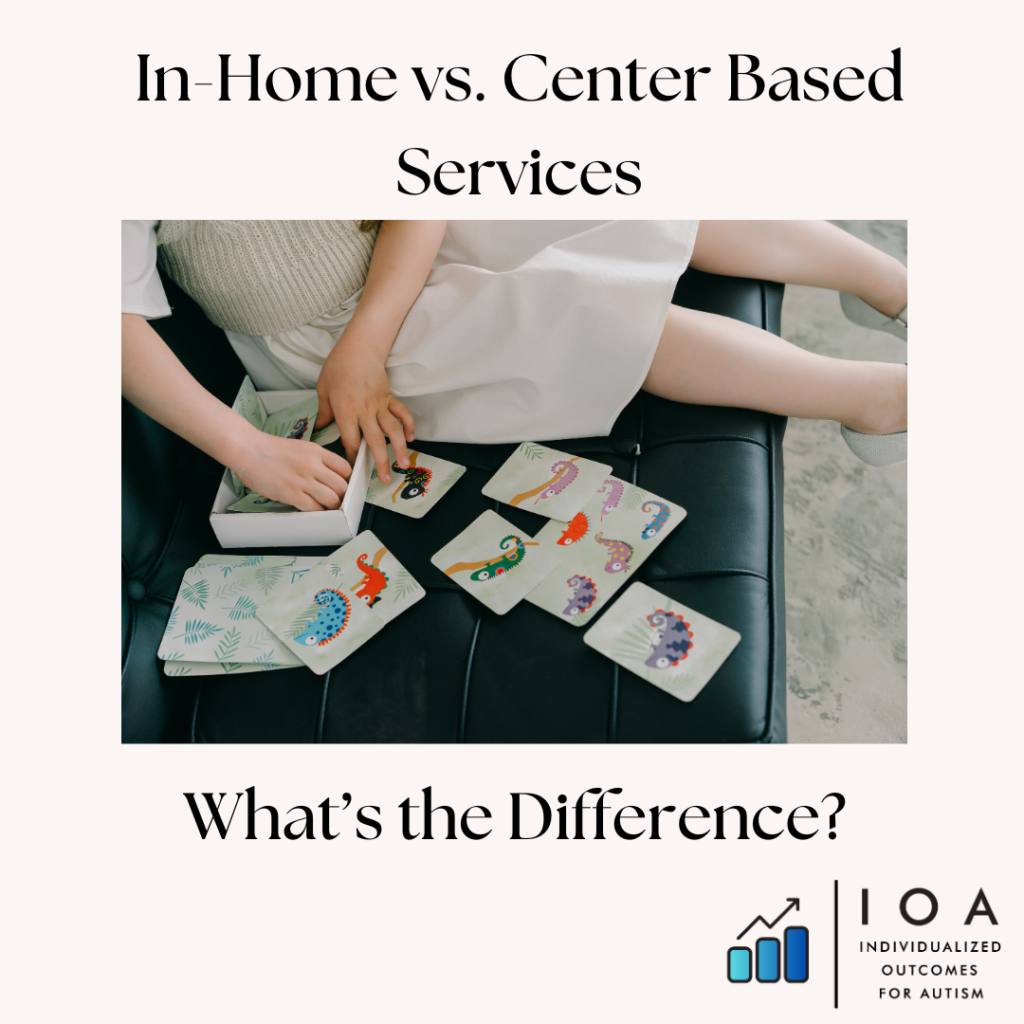
So, your loved one was just diagnosed with Autism. You have limited resources and very few options in terms of where to go, who to go to, and what to do. When choosing the appropriate treatment provider, treatment setting and overall treatment solution for an individual with developmental disabilities or autism, it can be difficult to know who to count on to be providing you with the accurate information
Why Early Intervention in ABA Therapy Makes All the Difference
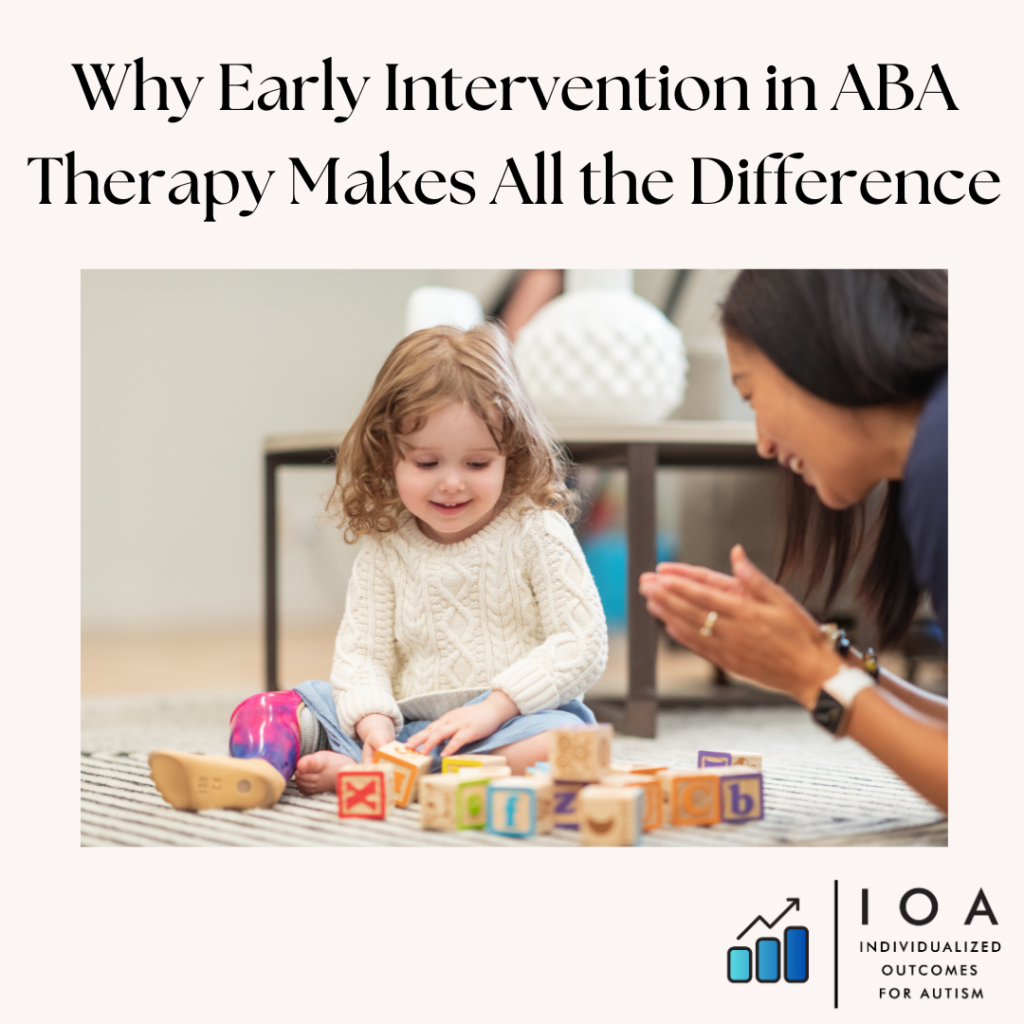
A common theme parents of children with autism often ask me is if my child is too young to start ABA therapy. There is a natural urgency to make sure we are doing the right things at the right time for our little one. Early intervention is so crucial for children showing signs of developmental delays or autism spectrum disorder.
Things I Wish I Knew When My Child Was Diagnosed with Autism-A Journey of Understanding and Acceptance

The day my child was diagnosed with autism, I sat in my car in the clinic parking lot and cried. Not only because I was sad, but also because we finally we had answers. If you’re reading this while sitting in your own car or lying awake at 3 AM googling “autism diagnosis what now,” I want you to know something…you’re going to be okay. Your child is going to be okay. It’s not going to be easy, and you are stronger than you think.
The Real Magic of ABA: Helping Neurodiverse Kids Shine
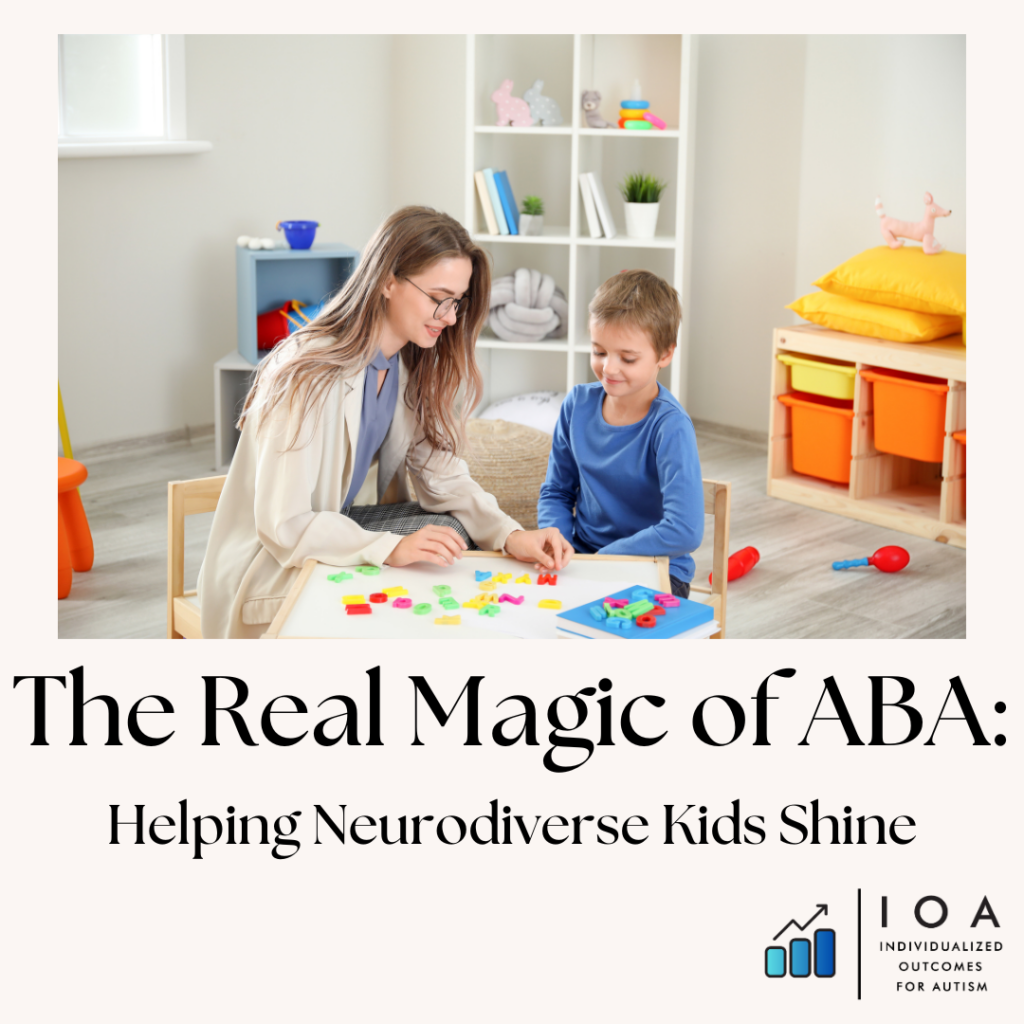
When you’re a parent of a neurodiverse child, you’re constantly searching for something that just “gets” your kid. Something that sees beyond the challenges and recognizes the incredible potential your child has. That’s where ABA therapy comes in and trust me, it’s so much more than just another therapy.
How much ABA is Enough?
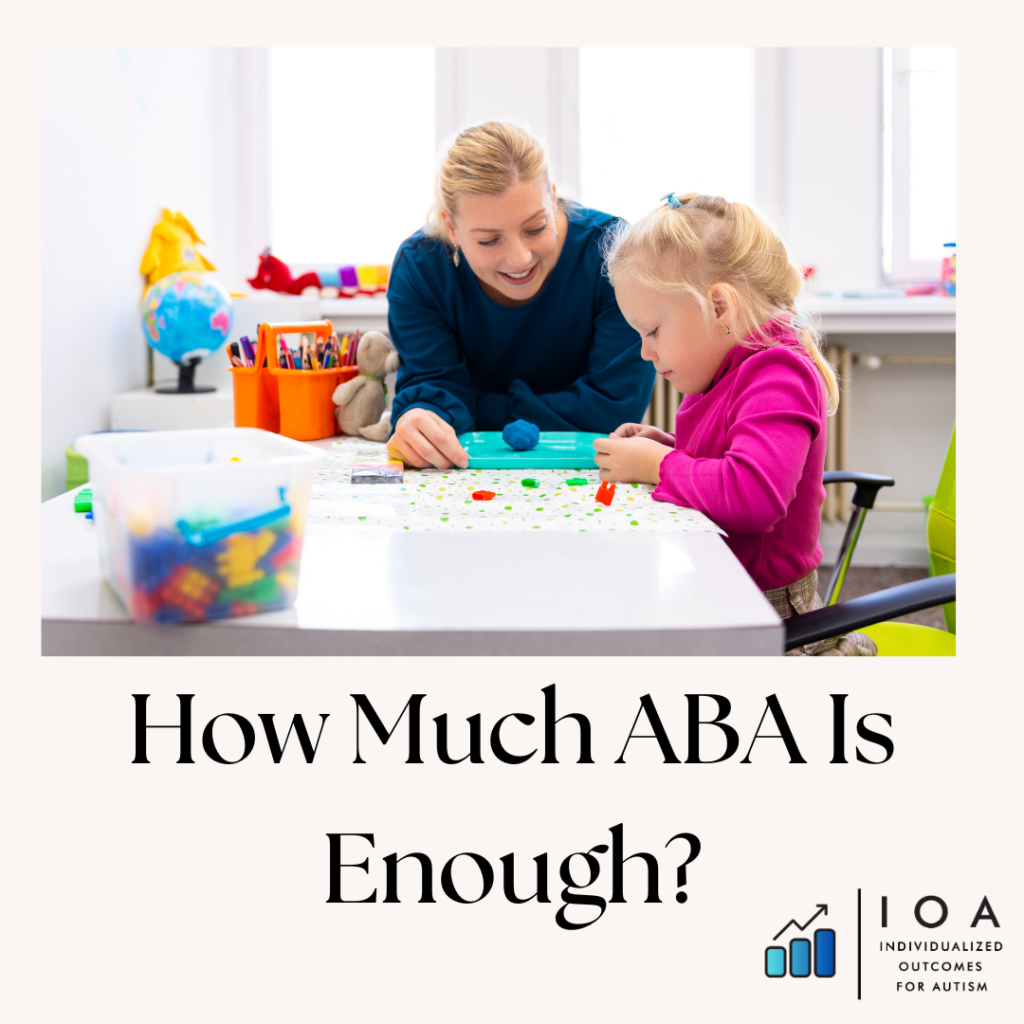
Applied Behavior Analysis, or ABA, is well recognized as the “gold standard” for treating Autism Spectrum Disorder (ASD). It works by harnessing the scientific principles of behavior into the everyday tasks and skills that most of us take for granted. ABA is also intense, with treatment being prescribed daily, up to 40 hours per week. This is a significant departure from the typical service model, which typically would involve monthly or weekly visits, often for as little as 30 minutes per week. But why does ABA want clients receiving 25 to 40 hours per week?
First Time in ABA: Why Choose Applied Behavior Analysis for Autism?

As a parent, hearing an autism spectrum disorder (ASD) diagnosis for the first time can bring a mix of emotions, uncertainty, hope, and a drive to do everything possible to support your child. Navigating the world of interventions and therapies might feel overwhelming, but one of the most researched and widely recommended options is Applied Behavior Analysis (ABA). So, what exactly is ABA, and why could it be the right fit for your child? Let’s break it down in a way that’s informative, practical, and grounded in real-world experience.
